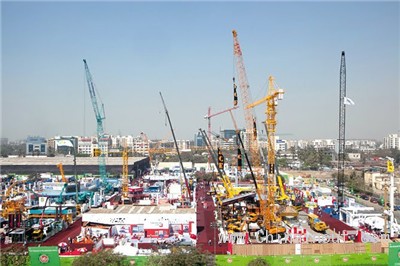正式批準的564個經(jīng)濟特區(qū)中,,截至今年6月,只有192個是可以運作的
經(jīng)濟特區(qū)(SEZs)可能是莫迪實現(xiàn)雄心勃勃的“在印度制造”計劃的中心內(nèi)容,。但是業(yè)內(nèi)專家表示,,撤銷稅收優(yōu)惠政策的做法使得經(jīng)濟特區(qū)變?yōu)橐粋€毫無吸引力的命題。
在原來的計劃中,,在經(jīng)濟特區(qū)的企業(yè)可免繳賬面利潤的最低替代稅(MAT),,開發(fā)商則可免繳股息分配稅(DDT)。但有跡象表明很多公司濫用該政策來進行房地產(chǎn)套利以及許多IT公司使用這條政策來彌補在印度軟件技術(shù)園區(qū)(STPI)計劃結(jié)束時遭到的稅收優(yōu)惠損失,,有鑒于此,,所有的這些稅收優(yōu)惠都取消了
從2011-12年起,特區(qū)中的各單位和開發(fā)商的最低替代稅豁免權(quán)被撤回,,開發(fā)商的股利分配稅豁免也被終止,。最低替代稅按20%的賬面利潤征收,而股利分配稅按分配給股東的股息的20%征收
德勤·哈斯金斯&塞爾斯公司的合伙人尼魯·阿胡亞表示,,經(jīng)濟特區(qū)最吸引人的地方就是可以不繳納所得稅,。“如果征稅的話,那勢必影響公司的利潤,,所以導(dǎo)致企業(yè)對經(jīng)濟特區(qū)變得不那么有興趣了,。”
普華永道公司的合伙人維維克·梅赫拉強烈建議廢除DDT和MAT,,然而新德里一家智庫即國家公共財政與政策研究所的專家卡維塔·饒則堅決反對。她堅稱“企業(yè)已經(jīng)獲得了很多激勵,,所以通過MAT來下調(diào)企業(yè)所獲得的好處也并非壞事,,我們應(yīng)該討論的是需要征多少稅。”
印度國際經(jīng)濟關(guān)系研究委員會的一名教授阿皮塔·慕克吉,,這家新德里智庫也在帶頭研究經(jīng)濟特區(qū)政策的成本效益分析,,他表示征收MAT將使得經(jīng)濟特區(qū)變得沒有吸引力,,并且對投資者的情緒造成了不利的影響,。因為在WTO規(guī)則下,征收MAT是可能受到懲罰的,;所以有必要提供符合WTO規(guī)則的更好的利商措施和激勵
盡管征稅問題還存在爭議,,但真正對投資產(chǎn)生影響的其實是稅制的不可預(yù)測性。Icrier( 印度國際經(jīng)濟關(guān)系研究院)的經(jīng)濟學(xué)家Anwarul Hooda和Durgesh Rai,在貿(mào)易與投資壁壘的研究中認為“無論國際或者國內(nèi),,稅收政策的可預(yù)測性是形成有益投資環(huán)境的必要條件,,因此撤銷直接征稅的優(yōu)惠讓SEZ計劃倒退,并影響了它的前景,。”
到目前為止,,564個經(jīng)濟特區(qū)已經(jīng)批準,至今年6月份,,只有192個在運行中,。這些特區(qū)2014年的就業(yè)總?cè)丝跒?,277,645人,原本預(yù)期是2009年就業(yè)人口就達到1,743,530人,。雖然經(jīng)濟特區(qū)在總出口額中所占的比重從2006-07年的6%提升至2010-11年的28%,,不過據(jù)認為在后來的幾年里特區(qū)占出口總額的比例已經(jīng)下降。整個經(jīng)濟特區(qū)的占地61,624公頃,,中國單深圳就占地49,300公頃,。
不論怎樣,Mehra說“經(jīng)濟特區(qū)政策將繼續(xù)關(guān)系到印度的發(fā)展前景,,但是為了促進它們繼續(xù)下去,,幾個政策的必須爭取”。Mehra認為提高它們的可行性需要“制造商應(yīng)該被允許在國內(nèi)市場銷售,,但是應(yīng)該在進口單獨的零部件上增加關(guān)稅而不是增收整個產(chǎn)品的關(guān)稅,,這將使得企業(yè)無法生存。沒有關(guān)稅應(yīng)該增加國內(nèi)增值稅,。”
印度與斯里蘭卡,、日本及東南亞國家聯(lián)盟簽訂了一系列的自由貿(mào)易協(xié)議,并將幾種商品的進口稅減為零,。這將影響經(jīng)濟特區(qū)企業(yè)在本地的銷售,,因為這些商品的稅一直處于較高水平,。馬赫拉建議:“印度的生產(chǎn)商應(yīng)該享受”最惠國“待遇,這意味著根據(jù)自由貿(mào)易協(xié)定印度的制造商享受最低的稅率,。”饒對以上觀點表示贊同,,并且表示“這種削減稅率的方式應(yīng)當(dāng)惠及所有制造商,不應(yīng)當(dāng)只局限于經(jīng)濟特區(qū)內(nèi),。”
但是專家表示稅率問題并不是阻礙經(jīng)濟特區(qū)的唯一困難,。據(jù)慕克吉聲稱:”盡管中央和地方出臺了超過300多項經(jīng)濟刺激政策與計劃,但是制造業(yè)大體上還是沒有任何提升,。因此,,刺激政策的出臺都應(yīng)該慎重評估與研究。刺激政策不應(yīng)該成為企業(yè)落戶經(jīng)濟特區(qū)的唯一原因,。要想成功,,就得實行利商的便利措施。地理位置,、基礎(chǔ)設(shè)施,、物流以及專業(yè)的特區(qū)管理將會是決定經(jīng)濟特區(qū)成敗的4大決定因素。”
經(jīng)濟特區(qū)政策在中國能成功的主要原因是有足夠的基礎(chǔ)設(shè)施,、能源,、公路和港口;印度沒有這些,。Rao說“讓經(jīng)濟特區(qū)和制造業(yè)在印度發(fā)展,,需要建造必要的基礎(chǔ)設(shè)施,這需要采取全局性的策略,。
Anwarul Hooda和Durgesh Rai在他們的研究中也指出“經(jīng)濟特區(qū)形式嚴峻的另一個主要原因是缺少與外部溝通的基礎(chǔ)設(shè)施支持,。經(jīng)濟特區(qū)需要與具有世界級公路和鐵路的港口和機場相連;港口和機場也是,,必須是世界級的,,海關(guān)當(dāng)局也需要采用國際化的最好做法,從而有利于貿(mào)易的進行,。但目前印度都不具備這些,。目前印度電力的缺乏也是一個主要的制約因素。(
中國進出口網(wǎng))
Of the 564 SEZs formally approved, only 192 were operational as of June this year
Special Economic Zones (SEZs) are likely to be central to realising Prime Minister Narendra Modi's ambitious Make in India agenda. But the withdrawal of tax incentives has made SEZs an unattractive proposition, say industry experts.

Under the original scheme, businesses in SEZs were exempted from the minimum alternate tax (MAT) on book profits and developers were exempted from payment of the dividend distribution tax (DDT). But with indications that companies were misusing the policy for real estate arbitrage and that information technology companies were using the policy to recoup tax benefits that they lost when the Software Technology Parks of India (STPI) scheme ended, these exemptions were withdrawn.
From 2011-12, MAT exemptions for SEZ units and developers were withdrawn and DDT exemptions for developers were terminated. MAT was levied on book profits at the rate of 20 per cent, while DDT was levied at 20 per cent on dividends distributed to shareholders.
According to Neeru Ahuja, partner at Deloitte Haskins & Sells, a key attraction for corporate houses was the income- tax holiday. "With taxes being levied, the savings for companies on account of tax concessions was reduced, impacting interest in SEZs," Ahuja said.
Vivek Mehra, partner at PricewaterhouseCoopers, argues DDT and MAT should be scrapped, while Kavita Rao, professor at the National Institute of Public Finance and Policy (NIPFP), a Delhi-based think tank, disagrees. She argues "as companies have been given incentives, toning those down through MAT is not a bad idea, per say. What can be debated is the level at which the tax is levied".
Arpita Mukherjee, a professor at the Indian Council for Research on International Economic Relations (Icrier), another Delhi-based think tank heading a study on analysing the cost benefit analysis of the SEZ policy, says the imposition of MAT has made SEZs unattractive and adversely impacted investor sentiment. This is because MAT exemptions are punishable under WTO (World Trade Organization) rules; there is a need to provide better business facilitation packages and incentives that comply with WTO rules.
Though the issue of taxation is contentious, it is the unpredictability of the tax regime that has had an impact on investments. In their study on trade and investment barriers, Anwarul Hooda and Durgesh Rai, economists at Icrier, argue "predictability in taxation policies is a sine qua non for making the environment conducive for investment, whether foreign or domestic, so the withdrawal of direct tax benefits has been a setback for the SEZ programme and has affected its future prospects".
Of the 564 SEZs that have been formally approved so far, only 192 were operational in June this year. Total employment in these enclaves was 1,277,645 in 2014, as against an expectation of 1,743,530 by 2009. While the share of SEZs in total exports rose from six per cent in 2006-07 to 28 per cent in 2010-11, it is believed to have declined in subsequent years. The total area under SEZs currently stands at 61,624 hectares, while Shenzhen in China alone covers 49,300 hectares.
However, Mehra says "the SEZ policy continues to be relevant from a Make in India perspective but several policy initiatives are necessary to get those going". Mehra argues that for improving their viability "manufacturers should be allowed to sell goods in the domestic market but duty should be imposed on individual parts imported and not on the entire product, which would make it unviable. No Customs duty should be imposed on domestic value added".
India has signed a number of free trade agreements (FTAs), with countries such as Sri Lanka, Japan and the Association of Southeast Asian Nations (Asean), under which import duties have been slashed to zero for several product lines. This impacts local sales of SEZ units, which are taxed at higher rates. Mehra proposes that "manufacturers in India should have the 'most favoured nation status that implies lowest tariff under the FTAs". Rao concurs, saying "such reductions should be extended to all manufacturers, not simply the ones in SEZs".
But experts contend that taxation issues are not the only ones impeding SEZs. According to Mukherjee, "Despite offering over 300 incentives and schemes for promotion of manufacturing at the Centre and state levels, manufacturing growth has not risen substantially. Therefore, incentives need to be carefully evaluated and studied. Incentives should not be the only reason for units to be located in SEZs. Success depends on the business facilitation measures adopted. Location, infrastructure, logistics and professional zone management are four key factors determining success of SEZs."
A major reason for the success of SEZs in China was the creation of complementary infrastructure, power, roads and ports; these are lacking in India. According to Rao, "To get SEZs and manufacturing going in India, the focus should be on creating the necessary infrastructure which will require a more holistic approach."
"Anwarul Hooda and Durgesh Rai, in their study, also point out: "Another major reason for the SEZs languishing is the absence of external infrastructure support. The SEZs have to be connected with ports and airports with world-class roads and rail; ports and airports, too, have to be world-class, with Customs authorities adopting international best practices in trade facilitation. This is not the case at present. Deficiencies in the availability and quality of power are an equally important constraint."












